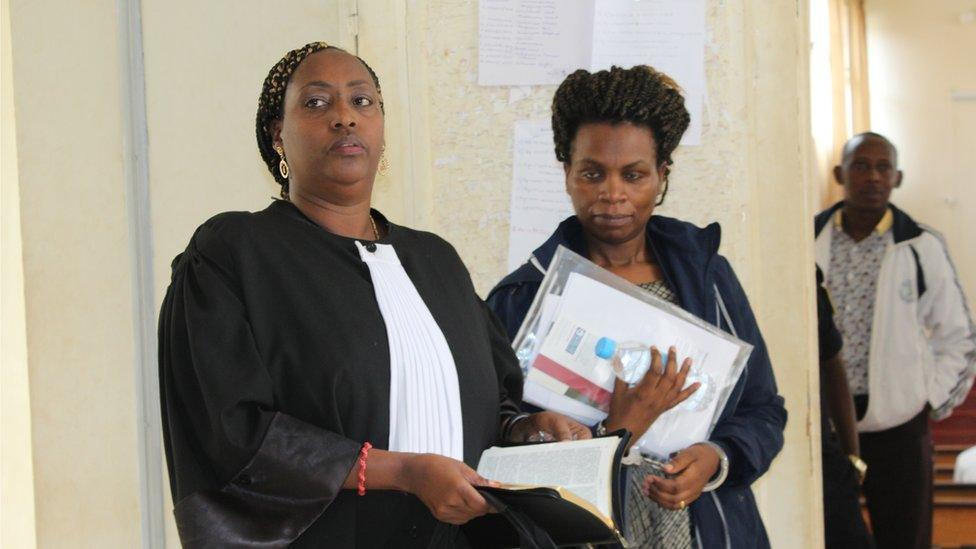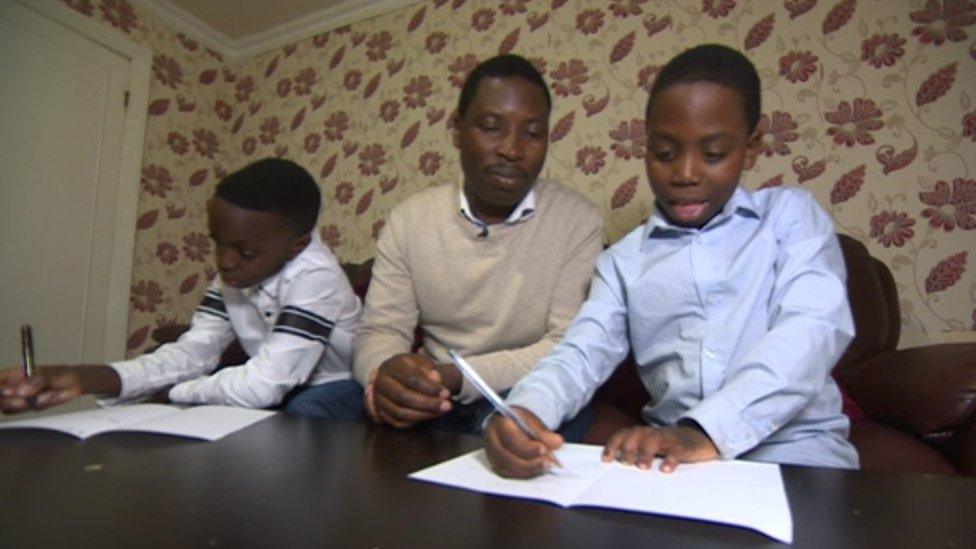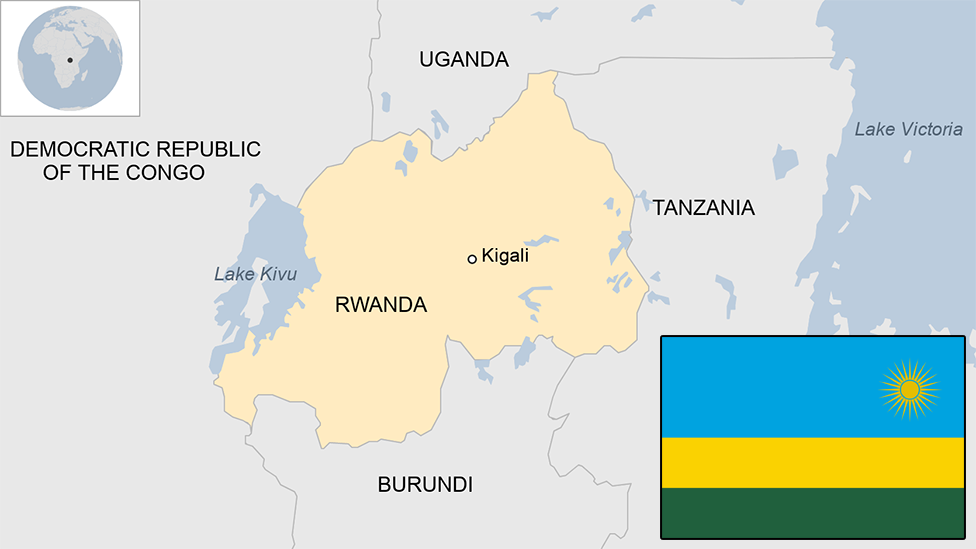British woman denies plotting against Rwanda's Kagame
- Published

Violette Uwamahoro (R) was arrested on 14 February
A pregnant woman from the United Kingdom has appeared in court in Rwanda on charges of spreading state secrets to undermine President Paul Kagame.
Violette Uwamahoro, a Rwandan-British youth worker, pleaded not guilty. Her husband who is an opposition activist says she is being made a scapegoat.
Prosecutors also allege Mr Uwamahoro was trying to form an armed group.
Her family has asked the UK government to intervene, saying they fear the trial is fixed and cannot be fair.
Mrs Uwamahoro looked calm during her court appearance, and smiled as she left the building, reports the BBC's Phocas Ndayizera in Kigali. She was remanded in police custody until her bail hearing, which is scheduled for Monday.
Mrs Uwamahoro, a youth worker from Leeds who is five months pregnant with her third child, was arrested on Valentine's Day after travelling to Rwanda for a family funeral.
"Foregone conclusion"
"I can tell you the outcome of this trial even before it gets going," Faustin Rukundo, Mrs Uwamahoro's husband, told the BBC.
"Finding her guilty is a foregone conclusion, especially as Rwanda's justice system is not independent, with any lawyer doing properly his job risking being disbarred."
Mr Rukundo said his wife has not spoken to her family since she was arrested five weeks ago.
He is involved with the Rwandan National Congress, external opposition group and believes the defendant is being victimised because of his role as a political activist.
The exiled politician says he is still waiting to see any result from his call to the British government asking for assistance.

Mr Rukundo, Uwamahoro's husband, along with their two boys, are hoping for the UK government to intervene
A spokesperson for the Foreign and Commonwealth Office said: "We are providing assistance to a British woman and her family following her arrest in Rwanda. Our staff in Kigali are in touch with local authorities."
President Kagame, who has been in power since his rebel army ended the slaughter of hundreds of thousands of people in 1994, has been criticised by some for trampling on freedoms and building up the army to assert his authority.
He has also been accused of using anti-genocide legislation to clamp down on opponents.
Human Rights Watch said it has documented a pattern of incommunicado detention in Rwanda in recent years, often of individuals suspected of links with government opponents.
- Published16 July 2024
